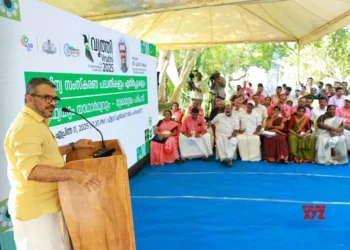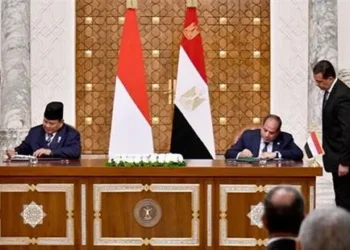US President Joe Biden’s assertion linking ‘xenophobia’ in India, China, Russia, and Japan to “stalled economic growth” overlooks the remarkable economic progress India has made in recent years, particularly under the leadership of Prime Minister Narendra Modi.
While acknowledging the challenges of xenophobia in various parts of the world, it is essential to recognise India’s significant strides in becoming one of the world’s top economies.
At an event in Washington, President Biden claimed that “xenophobia” is stalling the economic growth of China, Japan, and India. He also claimed that migration has been beneficial for the US economy.
Biden’s assertion regarding the contributions of immigrants to the United States is not merely a platitude; it is a well-supported economic fact.
However, his juxtaposition of immigrant contributions against alleged xenophobia in countries like India, China, Russia, and Japan is overly simplistic and fails to grasp the nuanced dynamics of India’s economic growth trajectory.
The global community, including the US, has witnessed how under PM Modi’s leadership, India has implemented bold economic reforms aimed at fostering growth, investment, and innovation. These reforms have contributed to India’s emergence as one of the fastest-growing major economies globally.
The country’s GDP growth rate has consistently outpaced many developed nations, reflecting its resilience and potential as an economic powerhouse.
Furthermore, India’s demographic dividend, characterised by a young and dynamic workforce, has been a driving force behind its economic progress.
Immigrants, both within the country and from abroad, have been integral to leveraging this demographic advantage and fueling growth across various sectors, including technology, healthcare, finance, and manufacturing.
Moreover, India’s economic ascent has been accompanied by a growing emphasis on international collaborations and partnerships. The country has actively sought foreign investments, forged strategic alliances, and engaged in trade agreements to bolster its economic resilience and competitiveness on the global stage.
What the global community cannot remain oblivious to is the fact that the Modi government has demonstrated a commitment to fostering inclusivity, promoting diversity, and leveraging the talents of its diverse population to drive economic growth and development.
Biden’s assertion regarding xenophobia as a hindrance to its economic growth overlooks India’s ascent to becoming one of the top five economies in the world in what is a clear testament to its resilience, innovation, and the unique policies to address various issues, including the issue of immigrants.
Undoubtedly, immigrants bring diverse skill sets, entrepreneurial spirit, and cultural richness that have historically fueled innovation and economic growth in the United States.
From Silicon Valley to Main Street, immigrants have founded or contributed significantly to some of America’s most successful businesses, driving job creation, productivity, and competitiveness.
India is not just a source of immigration but also a destination for skilled workers and investments. There is no denying that in today’s interconnected world, talent flows across borders in response to opportunities, creating a dynamic exchange that benefits both the sending and receiving countries.
India indeed has a significant immigrant population, primarily from the neighboring countries.
These immigrants often come seeking better economic opportunities, escaping political instability, or for various other reasons. The proximity of India to these countries and the historical ties contribute to the movement of people across borders.
India has long been a refuge for those fleeing persecution and seeking safety and opportunity. The experiences of the refugees settled across the nation paint a picture of acceptance, support, and resilience, which is a powerful rebuttal to any notion of India’s lack of acceptance towards refugees or immigrants.























